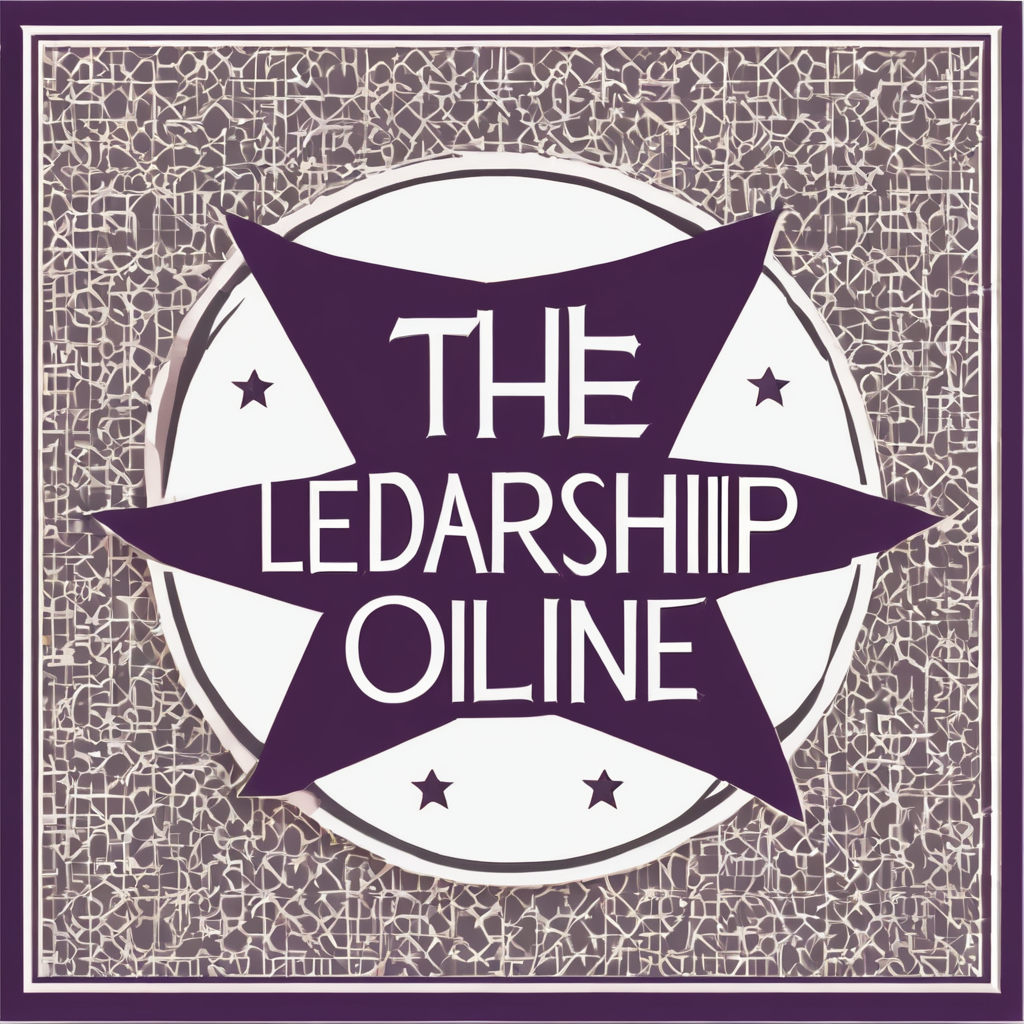Unlocking Ethical Supply Chains: The UK Business’s Ultimate Guide to Harnessing Blockchain Technology
In the modern business landscape, the integrity and transparency of supply chains are more crucial than ever. With the rise of consumer awareness and the need for ethical business practices, UK businesses are turning to innovative technologies to ensure their supply chains are not only efficient but also ethical and transparent. One such technology that is revolutionizing the way supply chains operate is blockchain. Here’s a comprehensive guide on how UK businesses can harness blockchain technology to unlock ethical and secure supply chains.
Understanding Blockchain Technology
Before diving into the specifics of how blockchain can transform supply chains, it’s essential to understand what blockchain technology is and how it works.
Blockchain is a distributed ledger technology that allows multiple parties to record and verify transactions without the need for a central authority. This decentralized system ensures that all data recorded on the blockchain is secure, transparent, and tamper-proof. Here’s a breakdown of the key features of blockchain technology:
- Decentralized Network: Blockchain operates on a network of computers rather than a single central server, making it more resilient and less vulnerable to cyber attacks.
- Distributed Ledger: All transactions are recorded on a shared ledger that is accessible to all parties involved in the network.
- Smart Contracts: These are self-executing contracts with the terms of the agreement directly written into code. They automate various processes, such as payments and compliance checks, once certain conditions are met[2][5].
Enhancing Supply Chain Transparency and Traceability
One of the most significant benefits of using blockchain in supply chain management is the enhanced transparency and traceability it offers.
Also to see : Revolutionizing uk agriculture: how drones are shaping the future of precision farming
Real-Time Data Management
Blockchain technology allows for real-time tracking and monitoring of goods throughout the supply chain. By recording every step of a product’s journey on the blockchain, businesses can ensure that all stakeholders have access to the same information. This real-time data management helps in identifying any discrepancies or issues promptly, thereby reducing the risk of counterfeit products and improving overall supply chain efficiency[1][5].
Secure and Transparent Records
The use of blockchain ensures that all records are secure and transparent. Since the data is stored on a decentralized ledger, it is virtually impossible to alter or manipulate the records. This transparency builds trust among consumers, suppliers, and other stakeholders, which is crucial for maintaining ethical supply chains.
Combating Counterfeits and Ensuring Authenticity
Counterfeit products are a significant issue in many industries, including the luxury goods and pharmaceutical sectors. Blockchain technology offers a robust solution to this problem.
Authentication Through Blockchain
By using QR codes or NFC tags linked to blockchain records, consumers can verify the authenticity of products. This secure verification system helps protect the reputation of businesses, deter counterfeiters, and enhance consumer trust in the market[1].
Optimizing Supply Chain Operations
Blockchain technology can streamline complex supply chain operations in several ways.
Efficient Supply Chain Management
Blockchain provides real-time information about shipments, storage conditions, and inventory management. This data enables businesses to optimize their operations, reduce waste, and respond quickly to fluctuations in demand. Smart contracts can automate various aspects of the supply chain, such as payments and compliance checks, further increasing efficiency and reducing the potential for human error[1][5].
Reducing Administrative Costs
Traditional supply chain management often involves manual document handling and costly data reconciliation processes. Blockchain technology automates these processes, reducing administrative costs and improving the overall efficiency of the supply chain.
Use Cases for Blockchain in Supply Chain Management
Here are some specific use cases that illustrate the benefits of using blockchain in supply chain management:
- Food Industry: Blockchain can be used to track the origin, quality, and movement of food products, ensuring food safety and reducing the risk of contamination.
- Pharmaceuticals: Blockchain can help in tracking the authenticity and movement of pharmaceutical products, combating counterfeits and ensuring patient safety.
- Luxury Goods: Blockchain can verify the authenticity of luxury goods, protecting brands from counterfeiting and enhancing consumer trust.
Steps to Implement Blockchain in Your Supply Chain
Implementing blockchain technology in your supply chain involves several steps:
Begin with a Use Case
Identify the specific problems you want to solve and confirm whether blockchain integration can resolve those issues. Start with a pilot project to analyze the results before scaling up[2].
Develop a Proof of Concept (POC)
Create a prototype using advanced tools that explain the intent of your business project. Test the prototype to understand how well it works and analyze the Minimum Viable Product (MVP) with a minimal set of features[2].
Select the Right Blockchain Platform
Choose a blockchain platform that suits your business needs. Popular platforms include Quorum, Ethereum, and Hyperledger Fabric. Consider factors such as security, scalability, and cost during your selection process[2].
Build and Test the Blockchain Solution
Build your blockchain solution and test it thoroughly to ensure it meets your requirements. This stage involves creating your own block to run and manage the entire network on the production of a particular chain[2].
Operate the Network and Activate the Blockchain
Operate the network by activating the blockchain on the blockchain network. Start with a cloud server for hybrid solutions that combine both off-chain and on-chain entities[2].
Challenges and Considerations in Blockchain Implementation
While blockchain technology offers numerous benefits, there are also several challenges and considerations to keep in mind:
Lack of Skilled Experts
One of the significant challenges is the lack of skilled blockchain experts. Businesses need to invest in training and hiring professionals who understand blockchain technology[2].
Complex User Interface
Blockchain technology can be complex, and the user interface may not be user-friendly for all stakeholders. Businesses need to ensure that the interface is intuitive and easy to use[2].
Changing Regulations
Blockchain regulations are evolving and can vary across different countries. Businesses need to stay updated on the latest regulations and ensure compliance[2].
Benefits of Using Blockchain in Supply Chain Management
Here are some of the key benefits of using blockchain in supply chain management:
- Enhanced Transparency: Blockchain provides real-time visibility into the supply chain, ensuring that all stakeholders have access to the same information.
- Improved Security: Blockchain ensures that all records are secure and tamper-proof, reducing the risk of counterfeits and cyber attacks.
- Increased Efficiency: Blockchain automates various processes, reducing administrative costs and improving the overall efficiency of the supply chain.
- Better Traceability: Blockchain allows for detailed tracking and monitoring of goods throughout the supply chain, ensuring that products are genuine and of high quality.
Practical Insights and Actionable Advice
Here are some practical insights and actionable advice for businesses looking to implement blockchain technology in their supply chains:
Start Small
Begin with a pilot project to test the feasibility of blockchain technology in your supply chain. Analyze the results and then scale up the implementation.
Collaborate with Experts
Collaborate with blockchain experts and consultants to ensure that the implementation is done correctly and efficiently.
Invest in Training
Invest in training your staff to understand blockchain technology and its applications in supply chain management.
Stay Updated on Regulations
Stay updated on the latest blockchain regulations and ensure compliance to avoid any legal issues.
Real-World Examples
Here are some real-world examples of businesses that have successfully implemented blockchain technology in their supply chains:
-
Maersk and IBM: Maersk, the world’s largest container shipping company, partnered with IBM to create a blockchain-based platform for tracking shipments. This platform has improved the efficiency and transparency of their supply chain operations[5].
-
Walmart: Walmart has used blockchain technology to track the origin and movement of its food products, ensuring food safety and reducing the risk of contamination[5].
Blockchain technology is revolutionizing the way supply chains operate by providing real-time visibility, enhanced security, and improved efficiency. By understanding the benefits and challenges of blockchain implementation, UK businesses can unlock ethical and transparent supply chains that build trust among consumers and stakeholders.
As Bernard Marr, a renowned business and technology futurist, notes, “Blockchain technology is ushering in a new era of transparency, authenticity, and efficiency in various industries. Its potential to enhance traceability, combat counterfeits, optimize the supply chain, and facilitate innovative investment opportunities makes it an invaluable tool for businesses, consumers, and investors alike.”[1]
By embracing blockchain technology, UK businesses can not only improve their supply chain operations but also contribute to a more ethical and sustainable business environment.
Table: Traditional Supply Chains vs Blockchain Supply Chains
| Aspect | Traditional Supply Chains | Blockchain Supply Chains |
|---|---|---|
| Transparency | Limited visibility into the supply chain | Real-time visibility into the supply chain |
| Security | Vulnerable to cyber attacks and data manipulation | Secure and tamper-proof records |
| Efficiency | Manual document handling and costly data reconciliation | Automated processes and reduced administrative costs |
| Traceability | Difficult to track the origin and movement of goods | Detailed tracking and monitoring of goods |
| Compliance | Complex and time-consuming compliance checks | Automated compliance checks through smart contracts |
| Cost | High costs due to inefficiencies and manual processes | Reduced costs due to automation and improved efficiency |
Detailed Bullet Point List: Features of Blockchain Supply Chain Solutions
- End-to-End Visibility: Provides real-time visibility into the supply chain, ensuring that all stakeholders have access to the same information.
- Transparent Records: Ensures that all records are secure and transparent, reducing the risk of counterfeits and cyber attacks.
- Automated Processes: Automates various processes, such as payments and compliance checks, through smart contracts.
- Improved Traceability: Allows for detailed tracking and monitoring of goods throughout the supply chain.
- Reduced Administrative Costs: Reduces administrative costs by automating manual document handling and data reconciliation processes.
- Enhanced Security: Ensures that all records are secure and tamper-proof, reducing the risk of cyber attacks.
- Better Compliance: Automates compliance checks through smart contracts, ensuring that all regulatory requirements are met.
- Increased Efficiency: Improves the overall efficiency of the supply chain by reducing waste and responding quickly to fluctuations in demand.
- Global Reach: Facilitates international trade by providing a secure and transparent platform for global supply chains.
- Energy Efficiency: Helps in reducing energy consumption by optimizing supply chain operations and reducing the need for manual processes.
By leveraging these features, businesses can create secure, transparent, and efficient supply chains that build trust among consumers and stakeholders.


